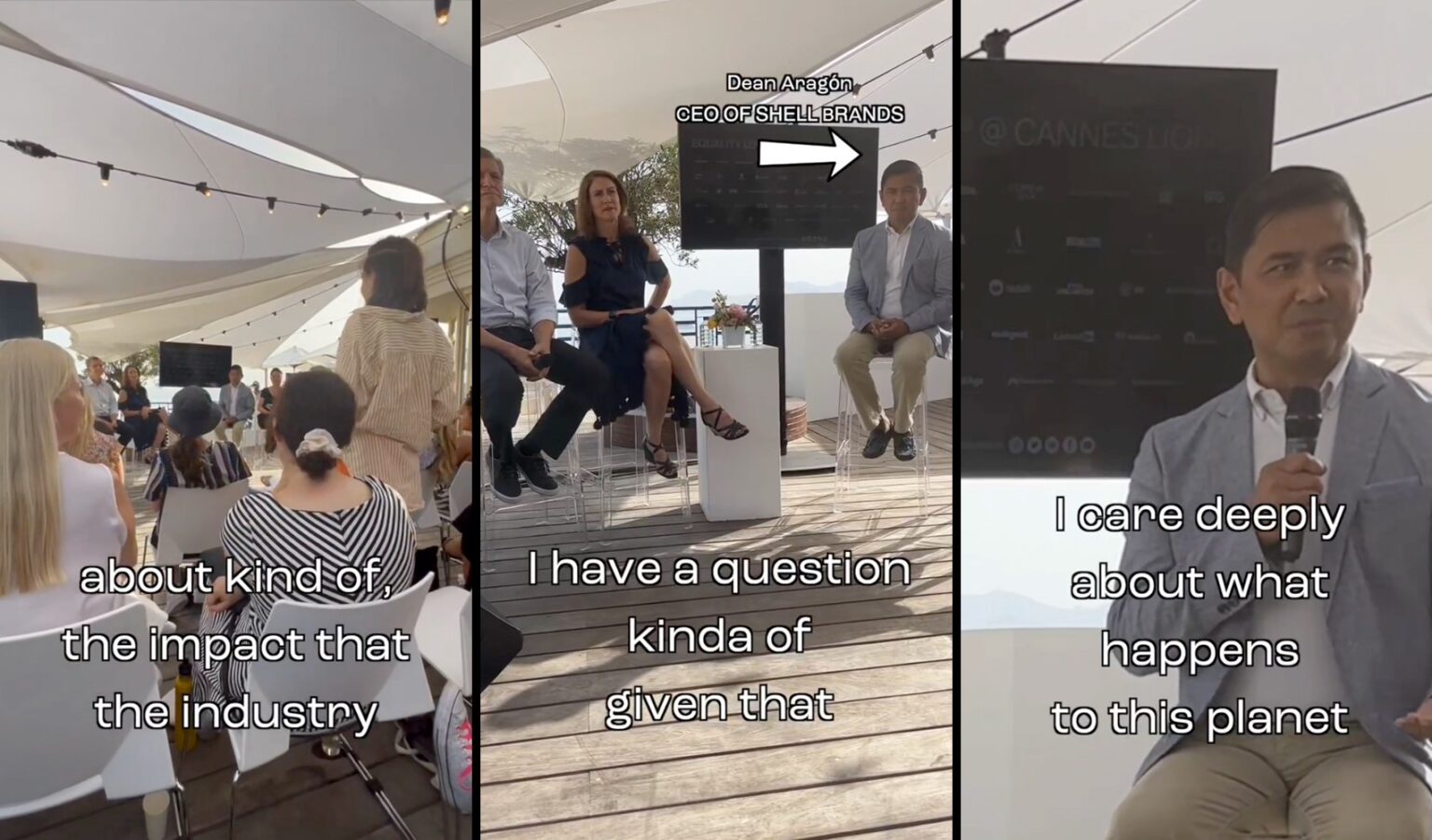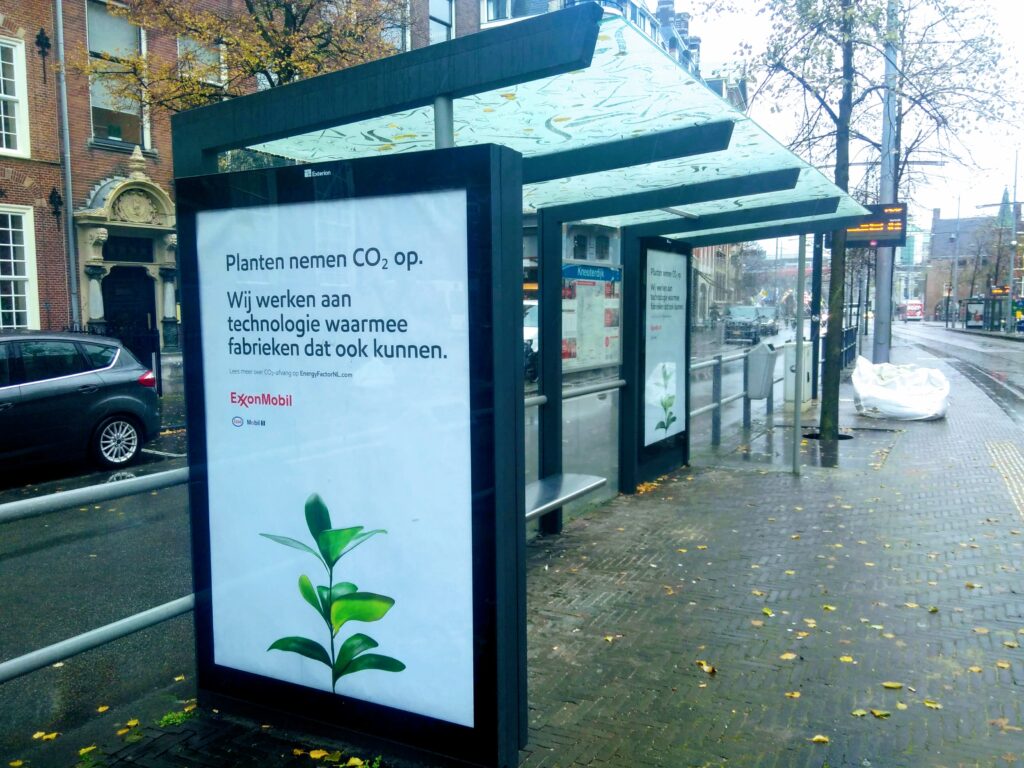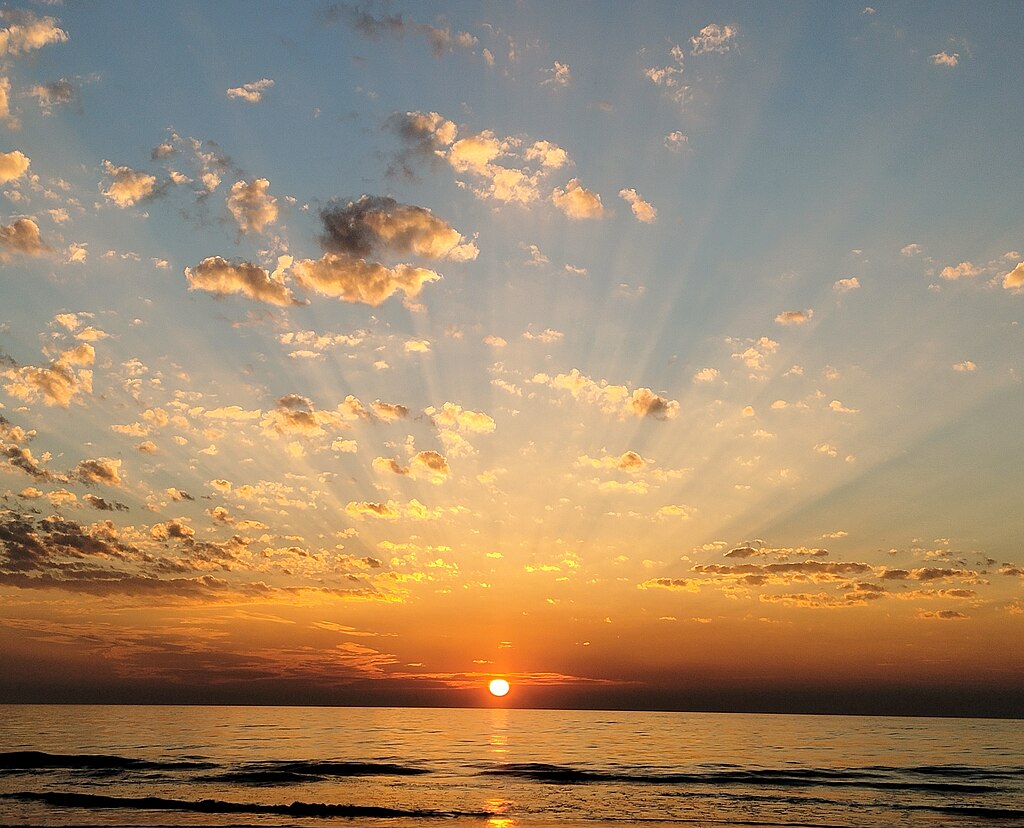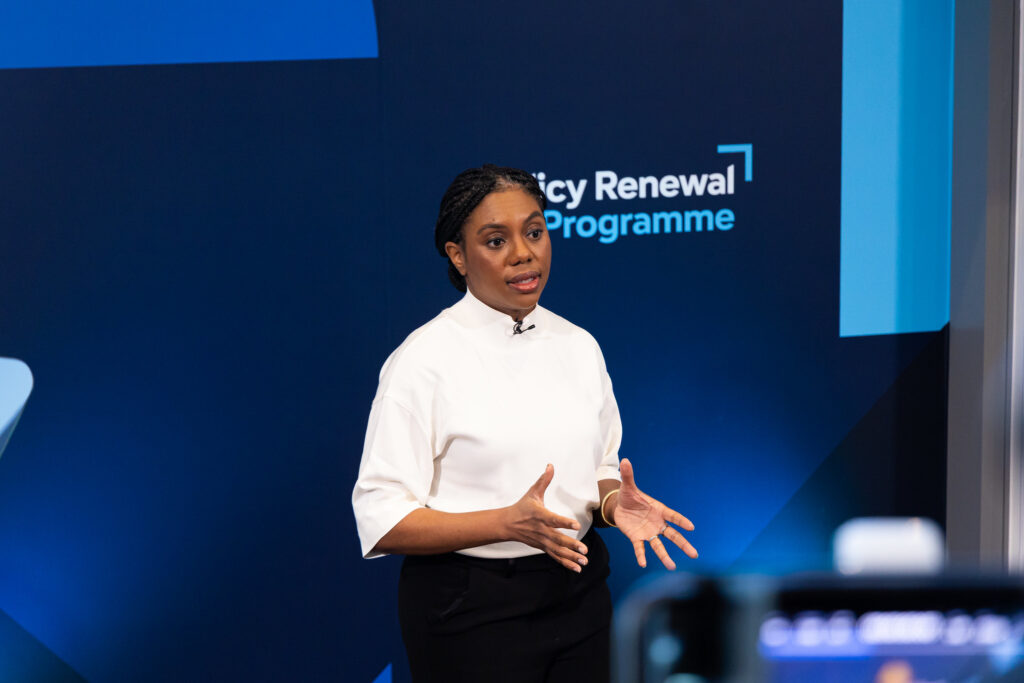There is something uniquely intimidating about standing a few feet away from somebody working in a senior position in a company that is in part responsible for fueling the climate crisis that keeps you up at night, worried for your future. Add a heatwave to this scenario, and the discomfort of feeling like an outsider amidst a crowd who’ve jetted in from across the globe creates the perfect cocktail for a panic attack — which is precisely what I experienced this time last year when I asked Dean Aragón, chief executive officer of Shell Brands, a disruptive question during an event at Cannes Lions 2022.
I was in Cannes as part of my campaigning work with Clean Creatives — an organization calling on the advertising industry and its agencies to stop working with fossil fuel clients. Our efforts generated some of the festival’s most viral social media content: a significant accomplishment at a gathering brimming with globally renowned, award-winning creative talent.
The event where I posed my question was themed around female empowerment in marketing. It took place at a venue called the ‘Equality Lounge,’ tucked onto a cramped balcony overlooking the French Riviera, where wealth seemed to ooze out of the yachts in the harbour. (And no, my question wasn’t asking Aragón why he was on a female empowerment panel in the first place.)
In 2021, an appeals court in The Hague had found Shell had violated its duty of care in the Niger Delta, and the company pledged to pay 15 million euros to communities impacted by oil spills in the region — a pittance compared to its soaring profits.
So my question for Aragón — who is responsible for developing and protecting the value of Shell’s trademark for licensing to other companies — was this: “Why is it that Shell conceals the impact it has on women, especially women farmers in Nigeria, who have suffered horrendously from oil spills caused by Shell?” It was the kind of challenging question that few in Cannes seemed prepared to ask.
But I’d felt that I had a moral obligation to voice an uncomfortable truth, no matter how uneasy I felt. And I knew that it was important that I use my platform to presence those on the frontlines of the climate crisis: those who have lost communities and families due to the activities of fossil fuel companies.
Renewed Resolve
The increasingly green image portrayed in advertising campaigns devised by creative agencies on behalf of oil and gas majors contrasts sharply with the reality in the sector, where a mere one percent of capital expenditure was directed towards low-carbon technologies in 2020, according to the International Energy Agency.
My question and Aragon’s reply — which involved a lot of um’s and ah’s — was met with overwhelming interest, and has since reached more than 400,000 views across social media, with groups such as Extinction Rebellion, Greenpeace and others amplifying its reach.
The truth is, as a climate activist who is used to seeing false promises and endless net zero commitments rolled back, my expectations from my question were low. But unless we, as engaged citizens — creatives or otherwise — confront the greenwashing of fossil fuels and polluting industries, business as usual will continue unchallenged. The endless rounds of awards and self-congratulation at Cannes Lions will go on, even as the planet burns.
This year, I am back at Cannes Lions with Clean Creatives, armed with renewed resolve to continue to be a disruptive force. So far, the Clean Creatives campaign urging creative agencies to ditch fossil fuel clients has won more than 600 pledges from agencies worldwide, leaving our focus on the more than 200 agencies that have yet to sign, and continue to take on oil and gas briefs under the umbrella of some of the biggest holding companies in the industry. With fossil fuel advertising now banned in France; new legal risks emerging around greenwashing; and companies such as Shell looking for new agency pitches, there has never been a better time to join us.
The International Energy Agency says there can be no new oil and gas projects if the world is to reach net zero and secure a livable future. The advertising industry can help ensure that such a vital moratorium becomes a reality by saying no to clients who want to prioritize greenwashing over action.
“As a father of five children, I care deeply about this planet, and that’s why I joined Shell,” Aragón said in response to my question.
One of my deepest fears concerning the climate crisis is the kind of world my future children might inherit due to actions by companies such as Shell, and the power their advertisers wield.
That fear is one of my biggest sources of motivation to keep challenging the creative industries to turn away from fossil fuel clients — and work instead towards a cleaner future.
Tolmeia Gregory is an artist and climate justice activist.
The Cannes Lions International Festival of Creativity runs until Friday.
Subscribe to our newsletter
Stay up to date with DeSmog news and alerts







